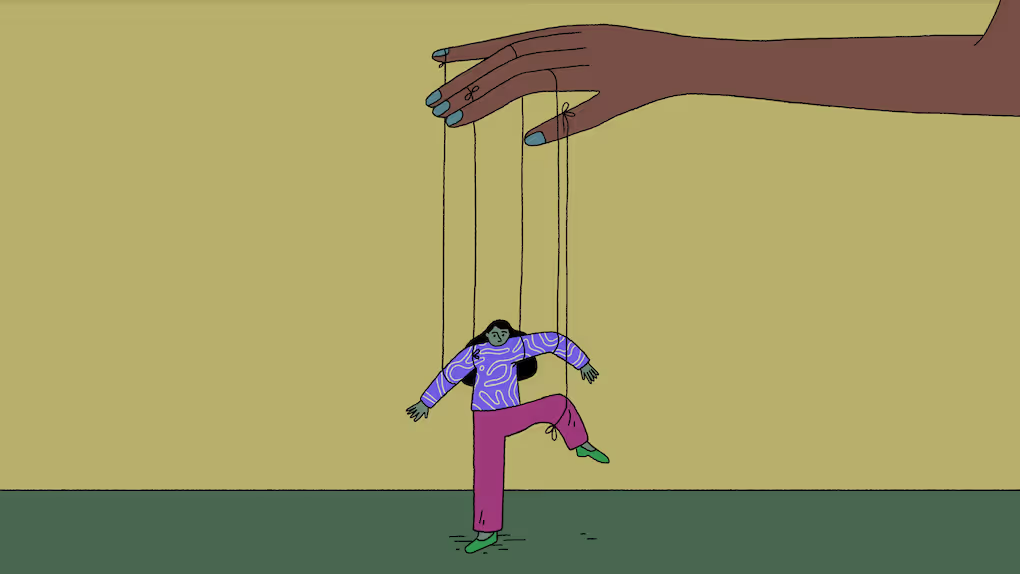Shall We Begin?
She called me for a reality check. “I’m wondering if I’m being gaslit by my partner or if I’m just being overly sensitive,” she said in a shaky Irish brogue. The content of her examples told me her side of the story: he hounded her when she was sick. He picked fights right before seeing friends (and then welcomed said friends as if nothing was wrong). He berated her constantly about how mean she was, all whilst yelling at her. Her tone, unsure and exhausted, told me more.
“I just have no idea if I’m basically a bad person.”
We hear the term “gaslighting” all the time now, often applied to a whole range of behaviors, some of which apply and some of which do not. I didn’t know if she was being gaslit. But it was clear to me that she was in a bad situation. Her sense of self had eroded. Her ability to trust her instinct and perspective had evaporated. Her doubt had calcified, turning her into a hard shell of herself, and she didn’t get there alone. Whenever she mustered the courage to speak up to him, she’d find that the exact words she was saying—you’re being really unkind right now—would be thrown right back at her ten times harder. What are you talking about? YOU’RE being unkind! You don’t even realize how mean you’re being. You don’t care about my feelings at all!
If you relate to this dynamic, don’t immediately fret. We’ve all had some version of this fight. As always, however, there’s a line. She was wondering if they had crossed it. She was so profoundly questioning reality that she needed something solid and sure. She wanted to know, definitively, if she was being gaslit. But without witnessing their dynamic together, I couldn’t answer that.
She was feeling many of the things people who are gaslit experience: confusion, self-doubt, and that she could no longer trust her sanity. In her relationship, she felt that her thoughts and feelings did not have validity. She was questioning her mental health because, as she shared, her partner often blamed her mental health as the root cause of their issues. Maybe he was right, she thought. After all, she had struggled before. Maybe this was her fault. Plus, he was really trying to be better.
She was sure she was complaining too much to me and wanted me to know that he had many good qualities. He loves her. He’s her best friend. She can’t imagine losing him. He introduced her to the arts. He’s a generous friend. He’d have moments of lucidity in which he could see his part in their dynamic but it was never long before they’d be back in the spin cycle. Round and round they’d go. She was so dizzy with doubt, she couldn’t see straight. She asked me again, “am I being gaslit or am I too sensitive?”
While I couldn’t answer her question, the question itself revealed so much. If you are constantly questioning and doubting yourself in a state of confusion then you know something’s not right. I think many of us try to grab these words—gaslighting, narcissist, red flag, and other therapy-speak—not because these are not very real and important psychological terms, but because giving it a name tells us what we’re going through is real. If we can name the problem, perhaps we can find the solution.
I’ve said it so many times: most relationship challenges are not problems to solve. They are paradoxes to manage. And sometimes, as was the case for this woman, you can love someone and still decide to leave them.
I spoke to this woman for an episode of my podcast, Where Should We Begin?, which I’m so glad to share is relaunching next week in partnership with Vox Media. And, this time, I’m trying a lot of new things.
When I was thinking about what I wanted to do differently, I thought about this woman. I wanted to know what happened after we spoke. Since none of the people on my podcast are my patients, I am always curious about what they do with the things we discuss. How did the conversation motivate them or help them make sense of what they were going through? How did it contribute to a process of change?
Six months after our initial conversation, this woman left me a long voicemail. The Irish brogue was there, of course, but the shakiness was gone. She had made a choice that would forever change her life. I could feel the confidence, joy, and maturity in her voice. She had the answer to her question and she was sure. Later this month, with her permission, you'll get to hear it for yourself.
Let’s Turn the Lens on You
- You may recognize yourself in the story above.
- Have you ever been caught in a dynamic of gaslighting?
- If you felt you were being gaslit, how did it lead you to question your sense of reality?
- Did you come in with one perception of yourself and develop another?
- Did you act completely out of character?
- Did it feel like a never-ending competition for whose feelings matter more?
- What did it take for things to change?
- If you stayed, were you able to turn the lens on you or only focus on the shortcomings of your partner? Or vice versa?
- How were you able to turn around the cycle of blame, attack, and defensiveness?
- If you left, what did it finally take for you to leave?
- How did the experience inform your future relationships?
More From Esther
Feeling Alone in a Relationship? You’re not alone. / an article
Over the last decade, we’ve experienced a new type of loneliness—the loss of connection, trust, and capital while we are next to the person with whom we’re not supposed to be lonely. Read more about feeling alone in a relationship, how it's intensified in the midst of crisis, and what you can do to reconnect.
Stop Bickering. It’s Killing Your Relationship / an article
Ongoing criticism can lead to the demise of the relationship. And if we criticize as a way of asking to be loved, we will often produce precisely the opposite effect of what we seek: to be loved and to feel good about ourselves. Here’s how to reset the negative pattern.
In a Relationship Standoff? Here’s How to Get Out. / a workshop
This workshop gets tactical about how to break the rhythm of escalation and examine our own rigidity. This link takes you right to the exercises.
Conversation Starters
A compendium of highly recommended sources of inspiration and information.
I’m Watching:
- “Beautiful Boy,” a film by Felix van Groeningen
- “All That Breathes,” a film by Shaunak Sen
- “Breathe,” a film by Mélanie Laurent
I’m Reading:
- "The Challenge of Closeness," Alain de Botton on Love, Vulnerability, and the Paradox of Avoidance (The Marginalian)
- “A Blueprint for Using AI in Psychotherapy,” by Dylan Walsh (Stanford’s Institute for Human-Centered AI)
- “Does Therapy Really Work? Let’s Unpack That,” by Susan Dominus (The New York Times)
I’m Listening To:
- “The role of social media and tech in Gen Z’s mental health,” by Alistair Carmichael and Kana Enomoto (McKinsey Future of Asia Podcast)






.svg)





